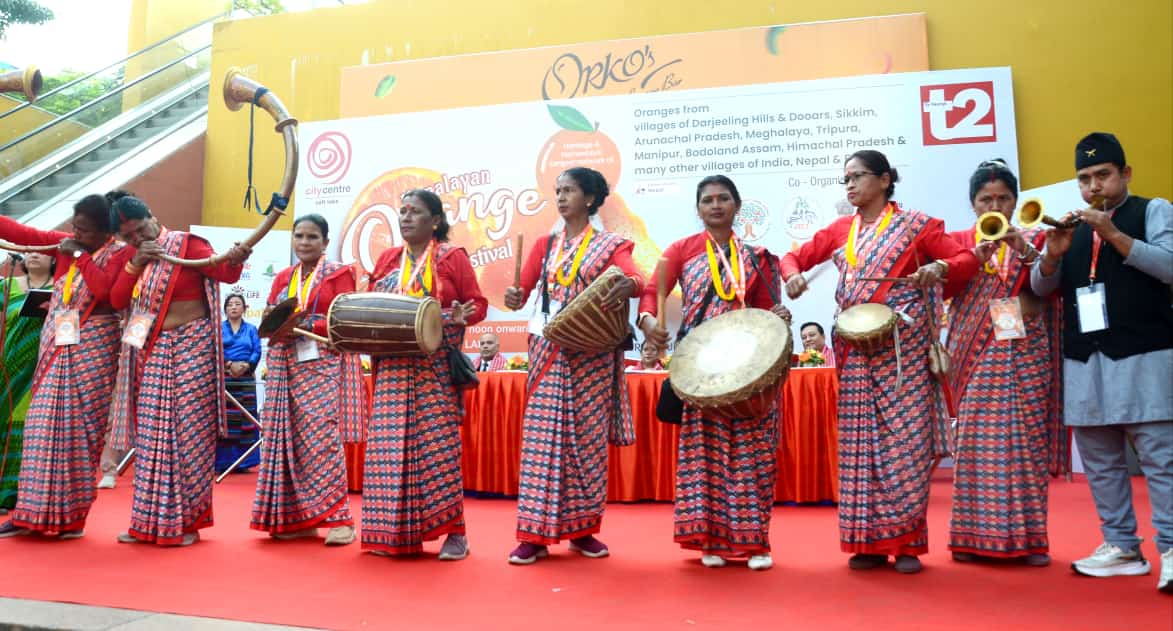Kolkata, December 7, 2024: The 6th edition of the Himalayan Orange Tourism Festival (HOTF), organized by the Association for Conservation and Tourism (ACT), was inaugurated today at City Centre 1, Salt Lake, Kolkata, India. Running until December 8, 2024, the festival bridges rural Himalayan communities with urban audiences, spotlighting the rich cultural, agricultural, and ecological heritage of the region.
The Himalayan Orange, a symbol of unity and sustainability, takes center stage as a representation of the livelihoods tied to agro-tourism, homestays, and orange-based organic products. These include traditional pickles, cooking ingredients, snacks, orange tea, and more, all of which are integral to supporting rural economies. The festival highlights the critical role urban consumers play in uplifting rural enterprises by embracing community-based tourism (CBT), supporting homestays, and purchasing organic products directly from local producers.

The festival draws inspiration from Rabindranath Tagore’s deep connection to the Himalayan region. Tagore’s frequent visits to Mongpu and his admiration for the mountains and their people continue to resonate as a guiding philosophy for ACT. His writings reflect a profound love for the serene landscapes and the vibrant culture of the region, embodying the ideals of harmony between nature and humanity. This legacy inspires ACT’s commitment to fostering sustainable tourism that honours the traditions, livelihoods, and ecological balance of the Himalayan communities.
This year’s festival celebrates the diversity of the Himalayan region, featuring agrotourism, crafts, cuisine, and cultural performances from regions such as North Bengal, Sikkim, Arunachal Pradesh, Meghalaya, Himachal Pradesh, Nepal, Bhutan, and others. Farm-to-table experiences, interactive sessions for collaboration between urban tour operators and rural tourism stakeholders, and live demonstrations of sustainable practices aim to foster connections and partnerships.
Kolkata, as a pivotal hub connecting North Bengal, Sikkim, Northeast India, Nepal, and Bhutan, offers an ideal platform to promote rural tourism in the Himalayan belt. Post-pandemic travel trends have seen a rise in demand for short, meaningful trips, encouraging urban dwellers to explore their regional surroundings, embrace slow travel, and invest in sustainable tourism.
The festival underscores the importance of nurturing agro-tourism and empowering mountain communities through homestay programs, eco-friendly tourism initiatives, and the production of orange-based organic goods, bamboo products and many other local handicrafts. These efforts contribute to holistic development by boosting local livelihoods, preserving cultural heritage, and promoting environmental sustainability in South Asia and the Himalayan region.
For over 30 years, ACT has been a pioneer in rural and community-based tourism. Its year-round advocacy focuses on empowering Himalayan communities, preserving their cultural and natural heritage, and fostering sustainable tourism practices aligned with the UN’s Sustainable Development Goals (SDGs). Inspired by Tagore’s vision, ACT continues to bridge the gap between urban and rural communities, ensuring the holistic development of people and the environment.
